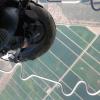Thoughts on Velocity aircraft
-
Members Online
- brad
- Aerodon
- Trogdor
- AVDB
- nickawhite
- Jerry 5TJ
- Fly Boomer
- JoeM
- Vance Harral
- LANCECASPER
- ta2too
- Parker_Woodruff
- EKoS
- IvanP
- MooneyMitch
- Ventus4
- Paul Thomas
- PeterRus
- Yan X
- dzeleski
- Schllc
- Utah20Gflyer
- Larry
- Skypunk107
- Jim F
- hazek
- MatthiasArnold
- DavePage
- rklems
- atpdave
- PT20J
- daytonabch04
- Ragsf15e
- Boboli
- hammdo
- Marc_B
- joepilotmooney
- pinkiedog64


Recommended Posts